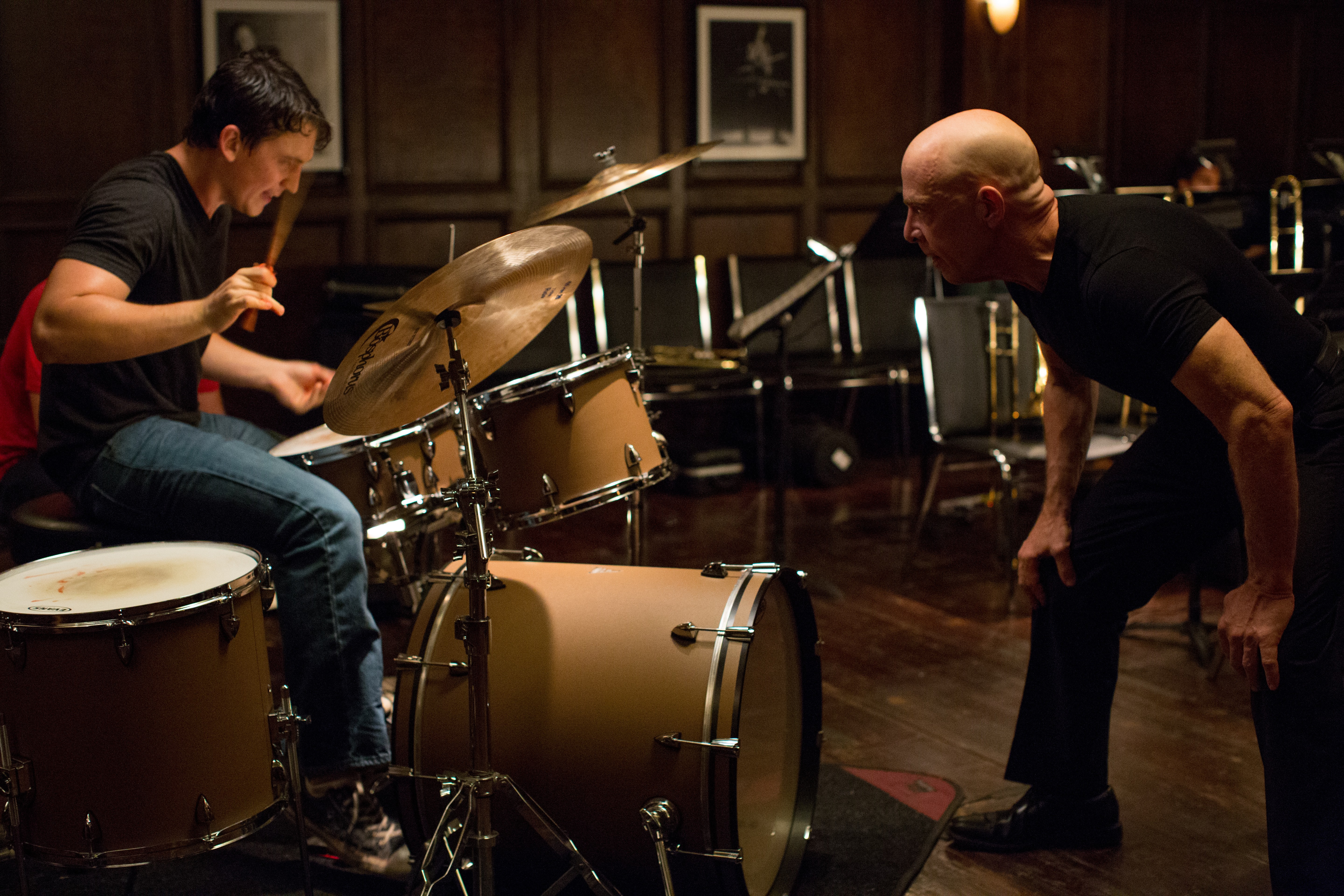 Being passionate about the arts often precludes a certain degree of obsessiveness that must seem odd or off-putting to those without said passion. There’s a way that our appreciation for artists or our desire to enter the canon of great artists ourselves can creep into our heads at the least opportune moments, or cause us to temporarily lose sight of the things that ultimately matter in life. The film Whiplash, written and directed by Damien Chazelle, focuses on a young man who exhibits these tendencies. The film examines the degree of obsessiveness which may, in fact, be necessary to achieve greatness in the arts.
Being passionate about the arts often precludes a certain degree of obsessiveness that must seem odd or off-putting to those without said passion. There’s a way that our appreciation for artists or our desire to enter the canon of great artists ourselves can creep into our heads at the least opportune moments, or cause us to temporarily lose sight of the things that ultimately matter in life. The film Whiplash, written and directed by Damien Chazelle, focuses on a young man who exhibits these tendencies. The film examines the degree of obsessiveness which may, in fact, be necessary to achieve greatness in the arts.
Andrew (Miles Teller) is an aspiring jazz drummer hoping to start his career at a prestigious music academy. After showing off his abilities in front of a notorious instructor named Fletcher (JK Simmons), Andrew is swept away into an elite group of musicians. However, his elation is stymied by Fletcher’s sheer antagonism. The man is severely insulting and sometimes physically violent, throwing things at performers who he does not believe are living up to their potential. He believes that to expose the truly great, he has to first weed out the pretenders
What makes Whiplash so much more interesting than most films about difficult or abusive mentor figures is the way that, despite Andrew’s anger towards Fletcher in many scenes, the two men ultimately share the same mentality about the arts. Andrew looks down on others in his life who have settled for lesser accomplishments, and puts an end to any personal responsibilities that could prevent him from practicing and becoming the legend he always dreamed of. When Fletcher tells Andrew in a late scene that “There are no two words in the English language more harmful than good job,” you can see through Max Teller’s performance that, at least in his eyes, Fletcher is perhaps right.
A lot of attention has been placed on JK Simmons’s performance, and rightly so. The man is a virtuoso with insults, and has an intensity that can creep out of nowhere. In a relatively early scene, he exhibits a genuine warmth while discussing Andrew’s background, making it even more jarring when he uses much of that information to attack Andrew shortly afterward. In the final scene of the film, Fletcher’s motivation shifts dramatically. No dialogue is used to indicate this change, as the scene leaves no room for it. Instead, Simmons’s performance betrays the full cognitive and emotional transformation, and nothing is lost in translation.
About that final scene: it’s arguably the best of the year, a whirlwind of kinetic editing and extremely focused cinematography. Several films this summer threw millions of dollars at state-of-the-art computer-generated imagery to create only a fraction of the thrill contained in this sequence. I left the theater on a cinematic high that only true lovers of the arts, like Andrew and Fletcher, might understand.
Wow, excellent review of a hard to describe movie. Nice job.